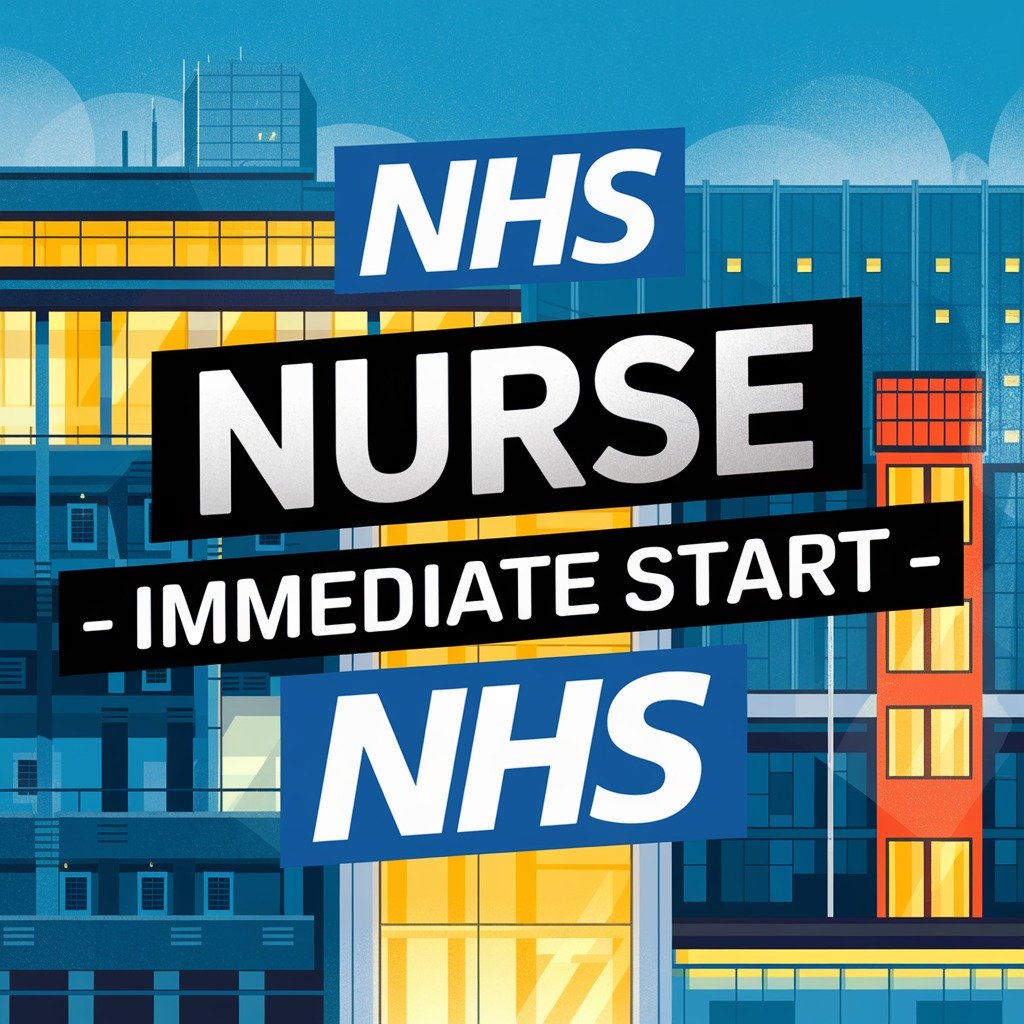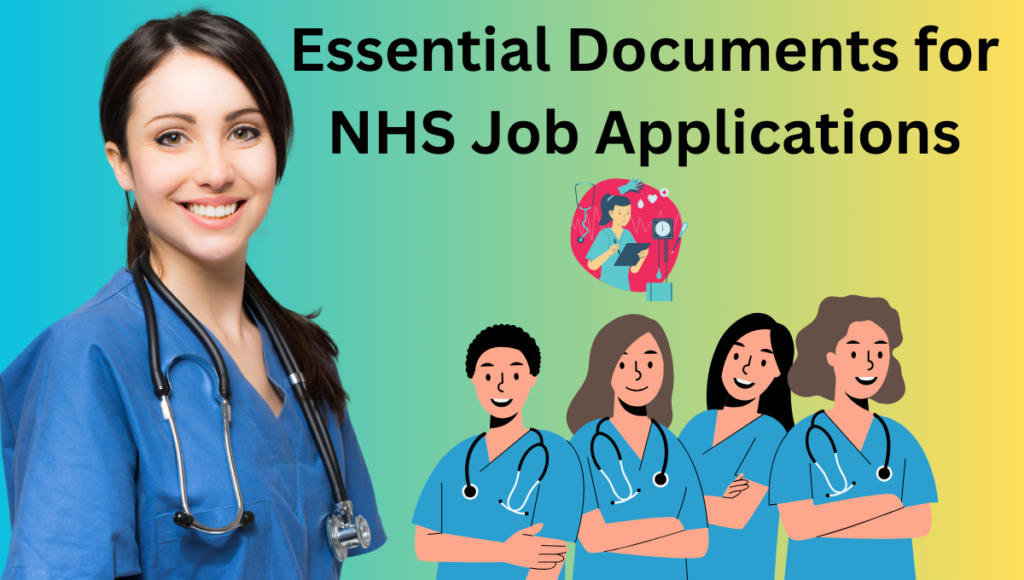How an International Graduate Can Select the Best NHS Job
For international graduates, the National Health Service (NHS) in the UK provides amazing job prospects. The NHS is a top employer for medical professionals globally because of its vast variety of roles, well-organized system, and commitment to providing high-quality healthcare. As an overseas graduate, this article outlines the essential procedures to assist you in selecting the best NHS position, ensuring that you make an informed and self-assured choice.

- Overview
One of the most well-known healthcare systems in the world, the NHS offers free care at the time of delivery. The NHS is a center for professional development because of its extensive network of clinics, hospitals, and community services. Working for the NHS as an international graduate entails supporting a company that places a high value on patient care, career development, and intercultural cooperation. - Being Aware of the NHS System
It’s crucial to comprehend how the NHS functions before applying.
General practitioners (GPs) and frontline services that offer the general public vital healthcare are included in primary care.
Specialized services, including surgery, diagnostics, and inpatient care, are the focus of secondary care.
Community services include support for vulnerable groups, mental health services, and long-term care.
Administrative and Support Functions: Essential positions that guarantee smooth operations in the background.
You can more successfully target employment by determining the industry in which your talents are most applicable.
- Categories of Open NHS Jobs
A wide range of professional fields are served by the NHS.
Roles in Medicine
physicians and experts in specialties such as emergency medicine, radiology, and cardiology.
Roles in Nursing
specialized nursing positions in surgery, mental health, and pediatrics.
Roles in Administration
HR services, IT assistance, and healthcare management are necessary to preserve operational effectiveness.
Support staff positions such as lab technicians, maintenance personnel, and healthcare assistants.
Knowing these areas makes it easier to match your knowledge with your selections.

- Qualifications International graduates must fulfill certain requirements for NHS jobs, which differ based on the position.
Educational Credentials: Verify that the UK accepts your credentials. While nurses must register with the Nursing and Midwifery Council (NMC), doctors must register with the General Medical Council (GMC).
Language Proficiency: To prove communication skills, English proficiency exams such as the OET or IELTS are required.
Clinical Experience: Your application is frequently strengthened by real-world experience.
- Work Permit and Visa Requirements
Through the Skilled Worker Visa program, the NHS provides assistance to foreign graduates. Important actions consist of:
Offer of Employment: Get a position that sponsors visas.
The Certificate of Sponsorship (CoS) will be provided by your employer.
Visa Application: Use the UK government website to submit an application for a skilled worker visa.
To prevent delays, timeliness and proper documentation are crucial.
- Using Skills to Select the Best Job
Diverse skill sets are valued by the NHS. Compare your strengths to job descriptions after evaluating them.
Assess Your Experience: Pay attention to positions that make use of your experience.
Think about transferable skills: In all professions, abilities like problem-solving, flexibility, and teamwork are essential.
Make Long-Term Objectives: Make sure your selected position fits your professional goals.
- Geographical Location Factors
Each of the four countries that make up the United Kingdom—England, Scotland, Wales, and Northern Ireland—offers distinct options.
With a combination of urban and rural locations, England has the greatest pool of NHS positions.
Opportunities are available in both urban and rural areas of Scotland.
Wales: A more specialized healthcare system that is smaller yet more concentrated.
Northern Ireland: Opportunities for collaboration within a close-knit healthcare system.
Finding a workplace that fits your lifestyle and professional objectives is ensured by doing your homework on the area.
- Pay and Benefits
The NHS offers generous perks and competitive wages.
Salary Bands: Experience and responsibilities are used to group roles into bands.
One of the UK’s most generous pension plans.
Extra Benefits: Offers relocation packages to qualified applicants, professional development grants, and yearly leave.
Making an informed choice is facilitated by being aware of these advantages.
- Adaptation to Culture
For overseas grads, adjusting to a new workplace culture is essential.
Collaboration & Teamwork: The NHS places a strong emphasis on providing patient care through a team-based approach.
Patient-Centered Care: It’s critical to respect patients’ autonomy and cultural diversity.
Communication Skills: In the UK healthcare system, empathy and active listening are essential.
A more seamless transfer is guaranteed if you take the time to comprehend and fit in with the workplace culture.
- How to Handle the Application Procedure
Although it is structured, the NHS employment application procedure necessitates preparation.

Roles in Research: To locate appropriate jobs, visit the NHS Jobs page.
Create a Powerful Resume: Emphasize your relevant experience and abilities.
Compose a Statement of Personal Experience: Adapt your statement to the particular position.
- Conclusion and Main Points
As an overseas graduate, beginning a career in the NHS is gratifying and hard. Through careful preparation, skill evaluation, and system comprehension, you can land a rewarding position that fits your goals. - Frequently asked questions
Q1: What is the NHS’s hiring strategy for foreign graduates?
A: The NHS actively seeks out foreign graduates and provides assistance with migration and visas.
Q2: What is the duration of the NHS visa application process?
A: Depending on your application and supporting documentation, the process may take one to three months.
Q3: Is passing the IELTS a requirement for work in the NHS?
A: For the majority of positions, proving English ability requires taking the IELTS or OET.
Q4: Are there chances to progress in your career?
A: The NHS does offer a wide range of professional development and training courses.
Q5: Can someone without any prior UK experience work in the NHS?
A lot of foreign grads with little to no UK experience do make the move to NHS positions.
Q6: What kind of assistance is offered to foreign graduates?
A: The NHS provides peer support groups, mentorship, and orientation sessions.
Be ready for competency-based interview questions that center on your work history.


I been fulfilling all the criteria be it oet, cbt. However I am not able to get a certificate of sponsorship, or not even scheduled any interview to join the NHS from Nepal.